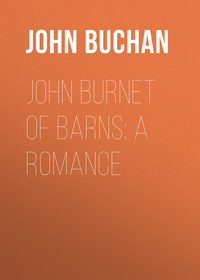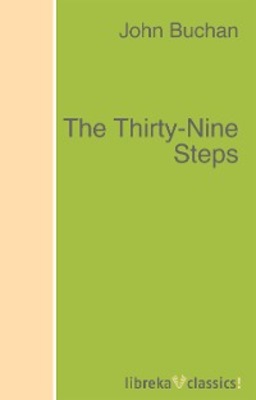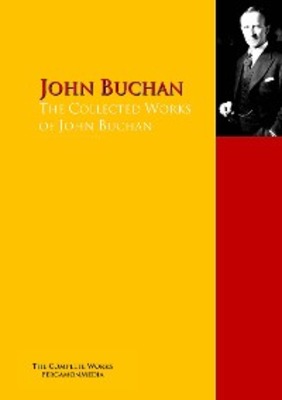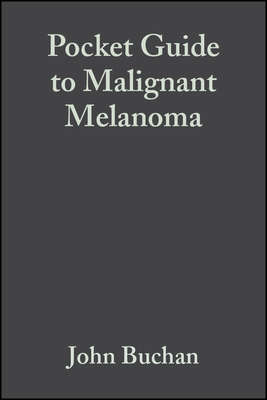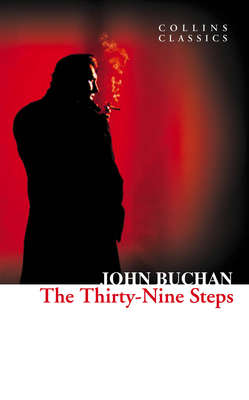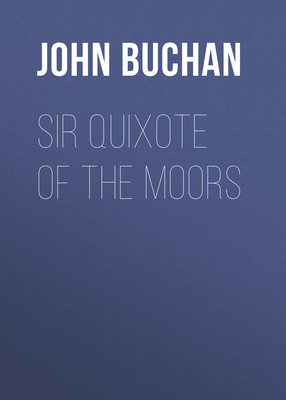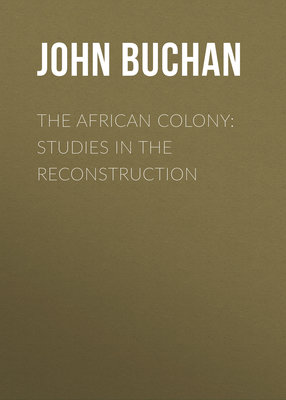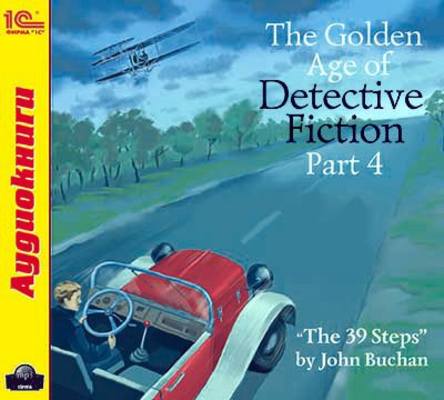Kitabı oku: «John Burnet of Barns: A Romance», sayfa 12
CHAPTER IV
HOW MICHAEL VEITCH MET HIS END
"When you had gone oot," began Nicol, "I just waited till I heard your footsteps gang oot o' the yaird. Syne I gaed dounstairs to the landlord, whae is a decent, comfortable kind o' man wi' no muckle ill aboot him. I telled him that my maister was terrible unweel, and on no accoont maun be disturbit, but that he maun hae the room to himsel' for the nicht. The man was verra vexed to hear aboot ye. 'Sae young a chiel,' says he, 'it's awfu'.' So I got my will, and I kenned I wad be troubled by nae folk comin' and speirin' aboot the place. There was nae reason why I shouldna gang awa' and leave the lawin', but I had a kind o' irkin' to get anither glisk o' the sodgers, so I e'en gaed into the room aside them.
"They were noo mair uproarious than afore. Nane were drunk, for 'faith, the Captain wasna the man to let his men dae that, but a' were geyan wild and carin' little aboot their language. The Captain sits at the heid o' the table sippin' his toddy wi' that dour stieve face o' his that naething could move, and that ye think wad be ashamed to sae muckle as lauch. But Maister Veitch wasna like him. He was singin' and roarin' wi' the loudest, and takin' great wauchts frae the bowl, far mair than was guid for him.
"By and by he gets up on his feet.
"'A health to the Captain,' he says. 'Drink, lads, to the welfare o' that most valiant soldier and gentleman, Captain Gilbert Burnet. Ye a' ken the errand ye're come on, to lay hands on a rebel and take him to his proper place, and I drink to your guid success in the matter.' And he lifts up his glass and spills some o' it ower the table.
"At this there was a great uproar, and they a' rose wi' their glasses and cried on the Captain. He sat a' the while wi' a sort o' scornfu' smile on his face, as if he were half-pleased, but thocht little o' the folk that pleased him.
"'I thank you,' he says at last. 'I thank you all, my men, for your good will. We have done well together in the past, and we'll do better in time to come. I will prove to the rebel folk o' this land that Gilbert Burnet will make them obey.'
"'Faith, Gilbert,' says Maister Veitch, 'hae ye no the grace to speak o' your verra guid friend? I think ye're beholden to me for a hantle o' your success.'
"The Captain looks at him wi' a glint o' guid humour. 'No more, Michael,' says he, 'than the cook owes to the scullion. You do my dirty work.'
"'Dirty work, quotha,' cried Maister Veitch, who was hot and flustered with wine. 'I wouldna tak that from any other than yoursel', Gilbert, and maybe no from you.'
"'Take it or not, just as you please,' said the Captain, scornfully. 'It's no concern o' mine.'
"This angered the other, and he spoke up fiercely:
"I am of as guid blood as yoursel', Gilbert Burnet. Is a Tweeddale gentleman no as guid as a bit westland lairdie?"
"'Faith, that is too much,' says the Captain. 'Michael, I'll make you answer for this yet.' So he sat with lowered brows, while Maister Veitch, to a' appearance, had forgotten the words he had spoken.
"In a little the Captain dismisses the men to their sleeping-quarters, and the pair were left alone, save for mysel', whae being in the dark shadows near the door escaped the sicht o' a'. The two gentlemen sat at the board eyeing each other with little love. By and by Gilbert speaks.
"Ye called me a bit westland lairdie no long syne, Maister Veitch, if ye'll be remembering.'
"The ither looks up. 'And what if I did?' says he. 'Is't no the fact?'
"'That it's no the fact I have a damned good mind to let you see,' says the ither.
"Michael looks at him askance. 'This is a gey queer way to treat your friends. I've done a' in my power to aid you in a' your pliskies. I've turned clean against the Laird o' Barns, who never did me ony ill, a' for the sake o' you. And forbye that, I've done what I could to further your cause wi' my sister, who is none so well inclined to you. And this is a' the thanks I get for it, Gilbert?'
"I saw by the dour face o' the Captain that he was mortal thrawn.
"'And a' the thanks ye are likely to get,' says he. 'Is't no enough that a man o' my birth and fame should be willing to mate wi' one o' your paltry house, a set o' thieves and reivers wi' no claim to honour save the exaltation o' the gallows-rope? Gad, I think it's a mighty favour that I should be so keen to take the lass from among you.'
"'By Heaven, that is too much to swallow!' said Maister Michael, as some sparks o' proper feeling rose in him at last; and he struggled to his feet.
"The Captain also rose and looked at him disdainfully.
"'What would you do?' said he.
"'This,' said the other, clean carried wi' anger; and he struck him a ringing lick on the face.
"Gilbert went back a step, and (for his honour I say it) kept his wrath doun.
"'That's a pity,' says he; 'that was a bad action o' yours, Michael, as ye'll soon ken. I'll trouble ye to draw.'
"I hae felt vexed for mony folk in my life, but never for yin sae muckle as puir Maister Veitch. He reddened and stumbled and plucked his sword from its sheath. He was dazed wi' wine and drowsiness, but his enemy made nocht o' that.
"They crossed swirds and I watched them fall to. I was terrible feared, for I saw fine that the yin was as angry as a bull, the ither as helpless as a sheep. It was against a' decency to let sic a thing gang on, so I ran forrit and cried on them to stop. 'D'ye no see the man's fair helpless?' I cried out; but they never seemed to hear me, but went at it as hard as ever.
"At first baith fought nane sae bad, for baith were braw swordsmen, and even in sic a plight Michael's skill didna desert him. Gilbert, too, was quieter than was to be expectit. But of a sudden a wild fury seized him. 'I'll teach ye to speak ill o' me and my house,' he cried in a voice like thunder, and cam on like a storm o' hail.
"Michael fell back and tried to defend himsel'. But the puir lad was sae dazed and foundered that frae the first he had nae chance. His blade wabbled at every guaird, and he never risked a cut. It was just like a laddie gettin' his paiks frae a maister and keepin' off the clouts wi' yae airm.
"And then he let his sword drop, whether wi' weariness or no I canna tell, and stood glowrin' afore him. The Captain never stopped. I dinna think he ettled it, for when he began I think he didna mean mair than to punish him for his words. But now he lunged clean and true. Nae sword kept it aff, nae coat o' mail wardit it, but deep into Michael's breast it sank. Wi' yae groan he fell back, and the breath gaed frae his body.
"I could hardly contain mysel wi' rage and sorrow. At first I was for rinnin' forrit and throttlin' the man, but I got a glimpse o' his face, and that keepit me. It was dark as a thunder-clud, and regret and unquenched anger lookit oot o' his een.
"'This is a black business,' he says to himsel', 'a black damnable business. God knows I never meant to kill the fool.' And he began to walk up and down wi' his heid on his breast.
"I felt that I had seen eneuch. My whole hert was sick wi' the peety o' the thing, and forbye it was time for me to be going if I was ever to win to Tweedside. So I slips frae the house, which was still quiet, for naebody kenned o' the deed, and far away somewhere I heard the lilt o' a sodger's song. I sped doun the Harbour Walk and syne into Embro', as though the deil were ahint me. When I won to Auchendinny it was aboot three in the mornin', and I made a' the haste I could. I think I maun hae run a' the road frae there to Leidburn. Then I took ower the Cloch hills and doun by Harehope and the Meldons. I crossed Lyne abune the Brig, and came doun Stobo burn, and here I am. I never met a soul for good or ill, so the land's quieter thereaways than folk make it oot. But doun by the Eddleston Water there's a geyan nest o' sodgers, so ye've nae time to lose, Laird, if ye wad win to the hills."
When I turned to Marjory at the close of this tale she was weeping silently; yet there was little bitterness in her tears. Her brother had, after all, made a better end than one could have guessed from his life. Indeed, I had small cause to feel kindness to him, for he had betrayed his trust, and had been the author of all the ills which had come upon my mistress. But for her sake I was sad.
"Marjory," I said, "I have many scores to settle with my cousin, for all his life he has done me ill, and the time will come when I shall pay them. I will add this to the others. Be assured, dear, that your brother shall not be unavenged."
And Marjory dried her tears, and from that hour spake never a word of Michael. But I knew well that deep in her heart remained an abiding sorrow which chastened the gaiety of her spirits.
CHAPTER V
I CLAIM A PROMISE, AND WE SEEK THE HILLS
And now I set myself resolutely to think out something that might be the saving of my life and my love. I was in a perilous case, for when Gilbert found that I had escaped him, he would come on forthwith to Dawyck, and, in all likelihood, be here ere nightfall. One thing was clear – that I could not bide myself nor leave Marjory to his tender mercies. The hills for me; and for her – ah, that was the rub in the matter!
At last I made out some semblance of a plan. On the edge of Douglasdale, in the shire of Lanark, dwelt William Veitch at the house of Smitwood, the uncle of the dead Sir John, an old man well fallen in the vale of years. He was unmolested by all, being a peaceable soldier who had served God and the king in his day, and now thought of nothing save making a good ending. He would gladly take the lass, I knew, and shelter her till such time as I should come and take her again. Nor would Gilbert follow her thither, for no word should come to his ear of her destined harbour, and he knew naught of the place nor the relationship. The plan came upon me with such convincing force that I took no other thought on the matter. Nicol should be left there both as a guard of the place – and who so vigilant? – and as some means of communication between me and my mistress. For my own part, when once I had seen my lass safely sheltered, I should take to the hills with a light heart. I should love to be free and careless among the wide moors, and try my wits in a fair contest against my sweet cousin.
I told the thing to Nicol and he gladly agreed. Then I sought out Marjory, who had gone to make some preparations for my flight, and found her talking gravely to the old man, the only remaining servant. I drew her to the little oak parlour.
"Marjory, lass," I said, "I am but new come home, and I little thought to have to take flight again so soon. Do you mind ere I went to the Low Countries I came here to bid you farewell, and you sang me a song?"
"I mind it well," said she.
"Have you a remembrance of the air, my dear? How did it go?" and I whistled a stave.
"Ay, even so. You have a good ear, John."
"I think, too, that I have mind of a verse or so," said I. "There was one which ran like this:
"'And if he were a soldier gay
And tarried from the town,
And sought in wars, through death and scars,
To win for him renown,
I'd place his colours in my breast
And ride by moor and lea,
And win his side, there to abide
And bear him company.'
Was it not so?"
"Yes," she said, smiling; "how well you remember, John."
"And there was a refrain, too," I went on.
"'For sooth a maid, all unafraid,
Should by her lover be,
With wile and art to cheer his heart,
And bear him company.'"
Marjory blushed. "Why do you remind me of my old song?" she said. "It pains me, for I used to sing it ere the trouble came upon us, and when we were all as happy as the day was long."
"Nay," I said, "it is a song for the time of trouble. It was your promise to me, and I have come to claim its fulfilment. I am for the hills, Marjory, and I cannot leave you behind. Will you come and bear me company? I will take you to Smitwood, where even the devil and my cousin Gilbert could not follow you. There you will be safe till I come again when this evil time is past, for pass it must. And I will go to the hills with a blithe heart, if once I knew you were in good keeping."
"Oh, John, to be sure I will follow you," she said, "even to the world's end. I will fare among rough hills and bogs if I may but be near you. But I will go to Smitwood, for most terribly I dread this place."
So it was all brought to a conclusion, and it but remained to make ready with all speed and seek the uplands. We trusted ourselves wholly to Nicol's guidance, for he knew the ways as he knew his own name, and had a wide acquaintance with the hillmen and their hiding-places. On him it lay to find shelter for us on the road and guide us by the most unfrequented paths. So we set about the preparing of provisions and setting the house in order. The old man, who was the sole servant remaining, was left in charge of the place against our uncertain return. For myself I should have taken but one horse, Marjory's roan mare, and tramped along on foot; but Nicol bade me take Maisie, for, said he, "I'll tak ye by little-kenned ways, where ye may ride as easy as walk; and forbye, if it cam to the bit, a horse is a usefu' cratur for rinnin' awa on. I could trot fine on my feet mysel', but though ye're a guid man at the sma'-swird, Laird, I doubt ye'd no be muckle at that." The words were wise, so I saddled Maisie and prepared to ride her to Smitwood, and there leave her.
It was, I think, about three hours after midday when we were ready to start on our journey. A strange cavalcade we formed – Marjory on the roan, dressed plainly as for the hills, and with a basket slung across the saddlebow, for all the world like a tinker's pannier; I myself on Maisie, well-mounted and armed, and Nicol on foot, lean and ill-clad as ever. It was not without a pang that we set out, for it is hard to leave the fair and settled dwellings of home for haphazard lodging among rough morasses. Marjory in especial could scarce refrain from tears, while I own that as I looked down the vale and saw the woods of Barns and the green hills of Manor, I could have found it in me to be despondent.
But once we left the valley and began to ascend the slopes, our spirits returned. It was an afternoon among a thousand, one such as only April weather and the air of the Tweed valley can bring. The sky was cloudless and the wind sharp, and every hill and ridge in the great landscape stood out clear as steel. The grass was just greening beneath our feet, the saugh bushes were even now assuming the little white catkins, and the whole air was filled with a whistling and twittering of birds. We took our road straight through the pine wood which clothes the western slopes of Scrape. The ground was velvet-dry, and the deer fled swiftly as we neared their coverts. It was glorious to be abroad and feel the impulse of life stirring everywhere around. Yet I could not keep from the reflection that at this very time the day before I had been nearing the port of Leith in the Seamaw, expecting nothing save a pleasant homecoming, and thereafter a life of peace. Truly in one short day and night I had led a somewhat active life, and now was fleeing from the very place I had most longed to return to.
Soon we left the woods and came out on the heathery brow of Scrape, and crossing it, entered the deep glen where the burn of Scrape flows to join the Powsail. The heather had been burned, as is the custom here in the early spring, and great clouds of fine white dust rose beneath the hooves of our horses. A dry crackling of twigs and the strident creak of the larger roots as they grated on one another, filled our ears. Then once more we ascended, high and ever higher, over rocks and treacherous green well-eyes and great spaces of red fern, till we gained the brow of the hill which they call Glenstivon Dod, and looked down into the little glen of Powsail.
We crossed the lovely burn of Powsail, which is the most beautiful of all Tweedside burns, since the water is like sapphire and emerald and topaz, flashing in every ray like myriad jewels. Here we watered our horses, and once more took the hills. And now we were on the wild ridge of upland which heads the glens of Stanhope and Hopecarton and Polmood, the watershed 'twixt the vales of Tweed and Yarrow. Thence the sight is scarce to be matched to my knowledge in the south country of Scotland. An endless stretching of hills, shoulder rising o'er shoulder, while ever and again some giant lifts himself clean above his fellows, and all the while in the glen at our feet Tweed winding and murmuring.
I asked Nicol what was the purpose of our journey, for this was by no means the shortest way to Douglasdale and Smitwood. He answered that to go straight to our destination would be to run our heads into the lion's mouth. He purposed that we should go up Tweed to a hiding-place which he knew of on the Cor Water, and then make over by the upper waters of the Clyde and the Abington moors to the house of Smitwood. These were the more deserted and least accessible places, whereas the villages and lowlands around the skirts of the hills were watched like the High Street of Edinburgh.
In a little we passed the wild trough where the Stanhope Burn flows toward Tweed. It was now drawing toward the darkening, and the deep, black glen seemed dark as the nether pit. Had we not had a guide to whom the place was familiar as his own doorstep, we should soon have been floundering over some craig. As it was, our case was not without its danger. It is not a heartening thing to go stumbling on hilltops in the dusk of an April evening, with black, horrific hill-slopes sinking on all sides. Marjory grew frightened, as I knew by the tightened clutch at her horse's rein, and her ever seeking to draw nearer me, but like the brave lass that she was, she breathed never a word of it. Every now and then an owl would swoop close to our faces, or a great curlew dart out of the night with its shrill scream, and vanish again into the dark. It was an uncanny place at that hour, and one little to be sought by those who love comfort and peace. But the very difficulty of the way gladdened us, for it gave us assurance that we would be unmolested by wayfaring dragoons. By and by stars came out and the moon rose, glorious and full as on the night before, when I had ridden from Leith. Then it served to light my course to Dawyck, now to guide me from it.
We were now descending a steep hillside, all rough with sklidders, and coming to the Water of Talla, which we forded at a shallow a little below the wild waterfall called Talla Linns. Even there we could hear the roar of the cataract, and an awesome thing it was in that lonely place. But we tarried not a minute, but urged our horses up a desperate ravine till once more we were on the crest of the hills. And now a different land was around us. Far to the right, where the Talla joins the Tweed, we could mark the few lights of the little village of Tweedsmuir. The higher hills had been left behind, and we were on a wide expanse of little ridges and moor which the people of Tweedside call "The Muirs," and which extends from the upper Clyde waters to the source of the Annan and the monstrous hills which line its course. I had been but once before in the place, in the winter time, when I was shooting the duck which come here in great plenty. To me, then, it had seemed the bleakest place in God's creation, but now, under the silver moonlight, it seemed like a fantastic fairyland, and the long, gleaming line of Tweed like the fabled river which is the entrance to that happy domain.
We were now near our journey's end, and in the very heart of the moors of Tweed. The night was bright with moonlight, and we went along speedily. Soon we came to a narrow upland valley, walled with precipitous green hills. Here Nicol halted.
"There'll be watchers aboot," he said, "and our coming 'ill hae been tellt to the folk in the cave. We'd better gang warily." So we turned our horses up the glen, riding along the narrow strip of meadowland beside the burn. I had heard of the place before, and knew it for the Cor Water, a stream famous for trout, and at this time, no less renowned among the hillmen as a hiding-place. For in the steep craigs and screes there were many caves and holes where one might lie hid for months.
Soon we came to a steep, green bank, and here we drew rein. Nicol whistled on his fingers, with a peculiar, piercing note like a whaup's cry. It was answered by another from the near neighbourhood. Again Nicol whistled with a different pitch, and this time a figure came out as from the hillside, and spoke.
"Whae are ye," he said, "that come here, and what do ye seek? If ye come in the Lord's name, welcome and a night's lodging await ye. If no, fire and a sword."
"I'm Nicol Plenderleith," said my servant, "as weel ye ken, John Laidlaw. And these are twae gentlefolk, whose names are no convenient to be mentioned here, for hillsides hae ears. If ye come near, I'll whisper it in your lug."
The man approached and appeared well-satisfied. He bade us dismount and led the horses off, while we waited. Then he returned, and bidding us follow, led the way up a steep gully which scarred the hillside. In a little he stopped at an out-jutting rock, and crept round the corner of it. At the side next the hill was an opening large enough to allow a man of ordinary stature to pass, and here he entered and motioned us to follow.
